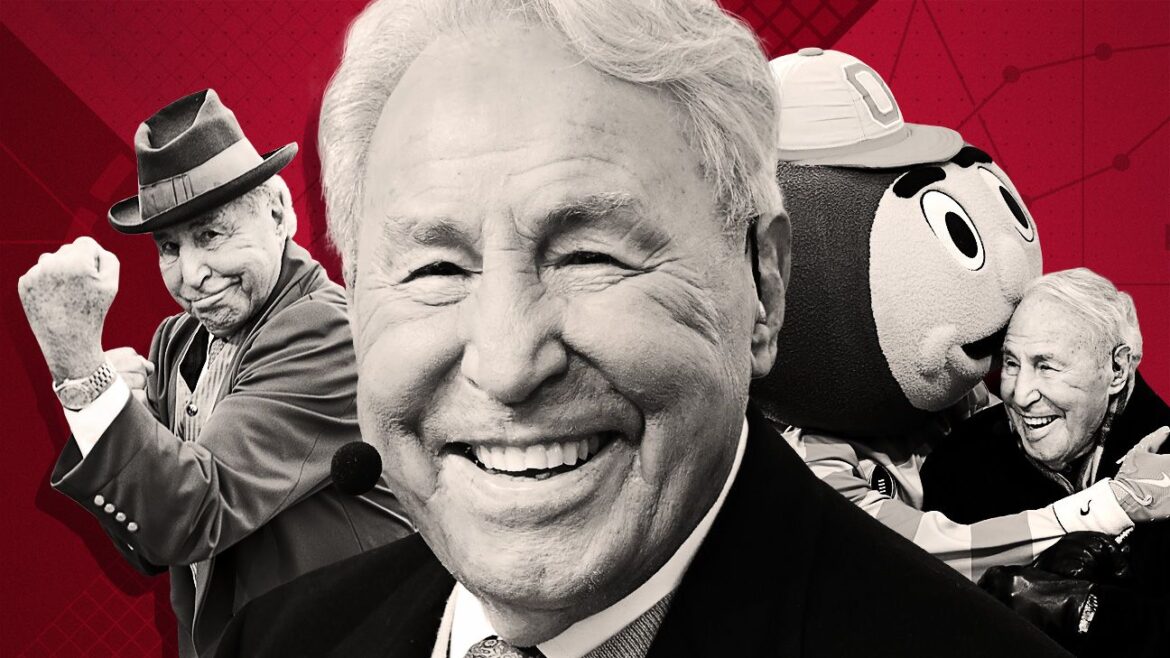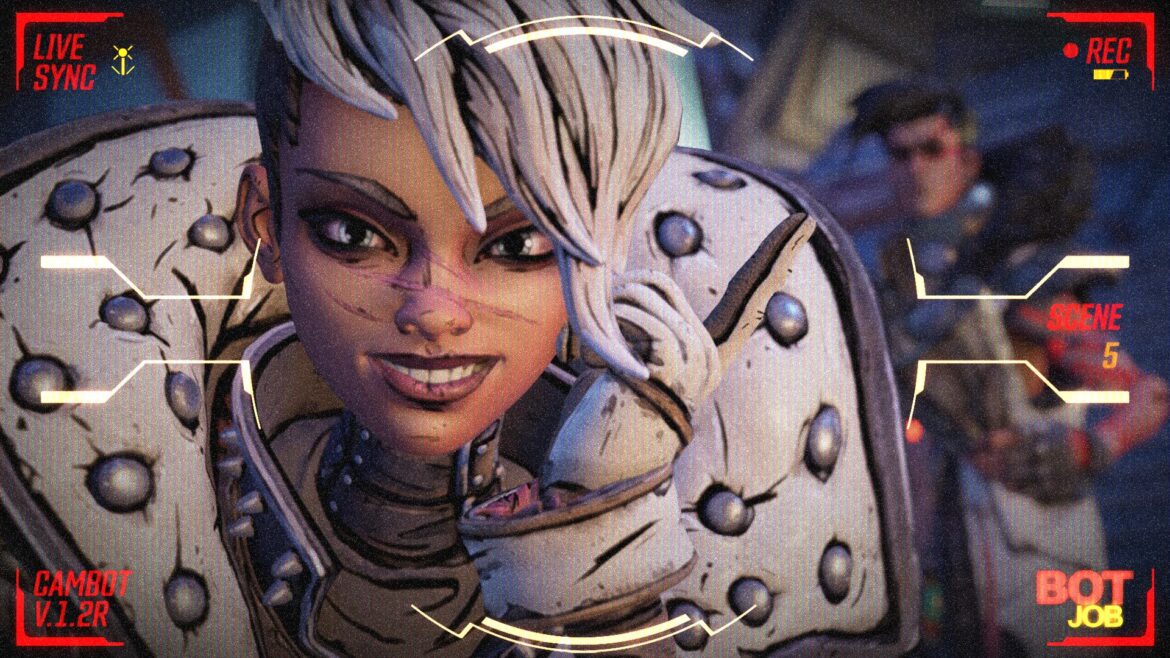“Appreciate you, young man.”
With all due respect to “Not so fast, my friend,” those aren’t the words that first come to my mind when I think of Lee Corso, who will be making his final “College GameDay” appearance Saturday at Ohio State. Instead, it’s that first sentence. Because those are the first words I ever heard from Coach. Well, the first I heard in person.
By the time he said that to me, on Saturday, Oct. 1, 1994, I had already heard him say so many words, but always through a television speaker. I had been watching him on ESPN for seven years. When “College GameDay” debuted Sept. 5, 1987, I was a high school student living in a college-football-crazed house in Greenville, South Carolina. My father was an ACC football official, and my role at the house was to get up Saturday mornings and make sure the VCR was rolling on Dad’s game that day so he could break down the film when we got home from church on Sunday.
Then, what to my wondering eyes did appear but a new ESPN studio show, previewing all of the day’s college football games, including wherever Pops might be with his whistle. It was called “College GameDay,” and that night in the same studio, the crew was back with highlights of all those games. It was hosted by Tim Brando, whom we knew from “SportsCenter,” with analysis provided by human college football computer Beano Cook and … wait … was that the guy who used to coach at Indiana? The last time we saw him, wasn’t he coaching the Orlando Renegades to a 5-13 record during the dying days of the USFL?
ESPN Illustration
Brando tells the story of Corso’s ESPN audition, how the then-52-year-old looked at his would-be broadcast partner and said, “Sweetheart, I’m here for the duration. This show is going to be the trigger for your career and my career. I’m going to be the Dick Vitale of college football. Football doesn’t have one. And this show is going to be my vehicle.”
That vehicle shifted into drive and stayed there, even as “College GameDay” remained parked in Bristol, Connecticut. Eventually, Brando moved on and wunderkind Chris Fowler took over as host. They were joined by former running back Craig James, who was nicknamed the “Pony Patriot” because of his college tenure at SMU and his NFL stint in New England. But that’s not what Coach called him. He addressed James as “Mustang Breath.”
Editor’s Picks
2 Related
That was the formative years “GameDay” lineup I consumed so hungrily during my college days in Knoxville, Tennessee. My roommates and I rose groggily on Saturday mornings to see whether Corso picked our Vols to win that day before stumbling out the dorm doors to grab a cheeseburger and head to the Neyland Stadium student section. If he said Tennessee was going to win, we declared him a genius. If he said the Vols were going to lose, we would scream, “What the hell do you know?! You only lasted one year at Northern Illinois!” That night, pizza in hand, we would watch him on the scoreboard show and again shout at the television. It was either “Spot on, Coach!” or “Hey, Coach, not so fast, my friend!”
Those were the autumns of the early 1990s. Just as Coach had predicted, “College GameDay” had indeed been a trigger. And he indeed was becoming the face of the sport he loved so much. At home, we could feel that love because we recognized it. We loved college football, too. Whether Corso picked your team or not, his passion for the sport was indisputable. That created a connection. Like seeing the same friends every Saturday, the ones whose season tickets have always been next to yours. Or the tailgater who has always parked in the spot next to you, offering up a beer and a rack of ribs. Or the guy you happen to meet as you are both bellied up to a sports bar on Saturday to watch college football games. All of them.
ESPN Illustration
In a business full of phony, Lee Corso has always been the genuine article. And in a world full of awful, Lee Corso has always been fun. All at once so irresistibly relatable but also larger than life.
So, now, imagine my through-the-looking-glass moment of that first time I heard him speak to me directly. That October Saturday in 1994. I was an entry-level ESPN production assistant, barely one year out from those dorm days at Tennessee. I was also barely five years from bowls of cereal back in our Greenville family room, labeling a VHS tape for my father while watching Corso break down what he thought might happen in Dad’s game.
“Appreciate you, young man.”
My assignment that day was to cut and script a highlight of my alma mater as the Vols hosted No. 19 Washington State. The headliner play was a long touchdown run by wideout Nilo Silvan on a reverse pitch from some kid named Peyton Manning. But the quiet play that really handed the Vols the upset was a fourth-down conversion early in the fourth quarter, when a 1-yard Manning run earned the first down by barely an inch, all while still in Tennessee territory. That set up a field goal that ended up sealing the 10-9 win.
Back then, every ESPN highlight was produced in a converted basement room crammed with tape machines and filled with the noise of 20-somethings like me, scrambling in and out of the edit rooms that lined what we called “screening.” When you were done piecing together your one-minute tape and scribbling out a handwritten script, you ran out of that edit room and down the hallway to the tape room and TV studio to deliver it all.
ESPN Illustration
As we were about to pop my Tennessee-Wazzu tape for the delivery dash, the door to our edit suite opened. It was Lee Corso. Without us knowing it, he had been watching through the window to see what plays we had included in our highlight. Without saying a word, he pointed at my script — called a “shot sheet” — and motioned for me to hand it to him. He read it, flipped it around so it was facing me and used his finger to tap the box describing that decidedly nonsexy fourth-quarter fourth-down conversion.
“Appreciate you, young man.”
Then he continued.
“I came down here to make sure you had this play in there. That was the play of the game. If we hadn’t had that play in this highlight for me to talk about, then I would have looked like a dummy. And I don’t need any help in that department, do I?”
He squeezed the shoulders of my editor, the guy at the wheel of the machinery.
“I appreciate you, too.”
ESPN Illustration
Then he walked out into the furious racket of screening and shouted through the aroma cloud of sweat and pizza, “How we doing, troops!”
Someone shouted back, “How was Nebraska, Coach?” A reminder that this was the first year that “College GameDay” had hit the road. They went out once in 1993, to Notre Dame, as a test. It went well, so they were headed out six times in 1994. Just two weeks earlier, they had gone to Lincoln, the show’s third-ever road trip.
He replied: “Lot of corn and big corn-fed dudes!”
Another shout: “You excited about going to Florida State-Miami next week, Coach?”
“Let’s hope it goes better than when I played there!” A reminder that the Florida State defensive back they called the “Sunshine Scooter,” who held the FSU record for career interceptions (14) for decades, was a career 0-2 against the Hurricanes in Miami.
Before Coach scooted back down the hall to the studio, he said it again. This time to the entire room of kids desperately trying to find their way in the TV sports business.
“I appreciate y’all!”
ESPN Illustration
That was more than three decades ago. And whenever I recall that story, it is echoed back to me by every single person who was in that screening room with me back in the day. And the people who first went out on the road with “College GameDay” in the mid-1990s. And the people who are out there with the show today.
In so many cases, it’s the same people. Jim Gaiero, the current producer of “GameDay,” was also down in screening back in the day. The group that produced the incredible “Not So Fast, My Friend” ESPN documentary was led by a handful of Emmy Award-winning feature producers who also were down in the pit, and also were recipients of so many “appreciate you”s.
It is impossible to measure the impact of someone like Corso, the face of his sport, taking those moments to encourage, to mentor, and to, yes, coach. That’s not common. But neither is he.
On the morning of the 2024 Rose Bowl, the College Football Playoff semifinal between Alabama and Michigan, I was sitting with Coach just before he headed out to the “GameDay” set. I shared with him that story from 1994 and told him how much it had always meant to me. He replied: “Winning games is great. But any real coach will tell you that isn’t the best part of the job. It’s watching those that you coached up as kids, seeing them grow into adults, have great jobs and raise great families. That’s why you do it.”
ESPN Illustration
Lee Corso spends every Saturday surrounded by those he has coached. And that’s why it has been and will be so hard to say goodbye. It’s why there was never an icicle’s chance in Phoenix that Corso was going to be off the show after he suffered a stroke. It’s why he was still part of the show in 2020, when COVID-19 had him stuck at home in Florida as the rest of the crew was back on the road. It’s why he has been on the show ever since it was born, even as it has grown from a few guys in a studio to a few dozen fans behind the stage on the road to the rock concert circus caravan that it is today. Exactly what Coach believed it could be when he showed up for that first audition 38 years ago.
Love. That’s why.
You see it in the eyes of those who work on the show. The way they look out for him. The way they still hang on every word he says. We all see it very publicly when we watch Kirk Herbstreit. It’s hard to remember when we see the current Herbie, the father-of-four statesman of the sport, but when he first joined “College GameDay” in 1996, he had just turned 27, less than four years out of Ohio State. When Kirk posts those early Saturday morning videos of Coach sharing a story or Coach pulling a prank or Coach cracking himself up as he tries to figure out how to navigate an overly complicated escalator, we all feel that. Just as we have felt that since the first countdown to the first “College GameDay” on Sept. 5, 1987.
Not so fast? It has gone by too fast. But what a friend.
Appreciate you, Coach.



